Eating and cooking sustainably is not difficult and is something we can all do. When people ask me where to start with reducing their carbon footprints, I always suggest starting with food. Why? Because food is part of our everyday lives. Eco-conscious cooking is easy and can make a big difference.
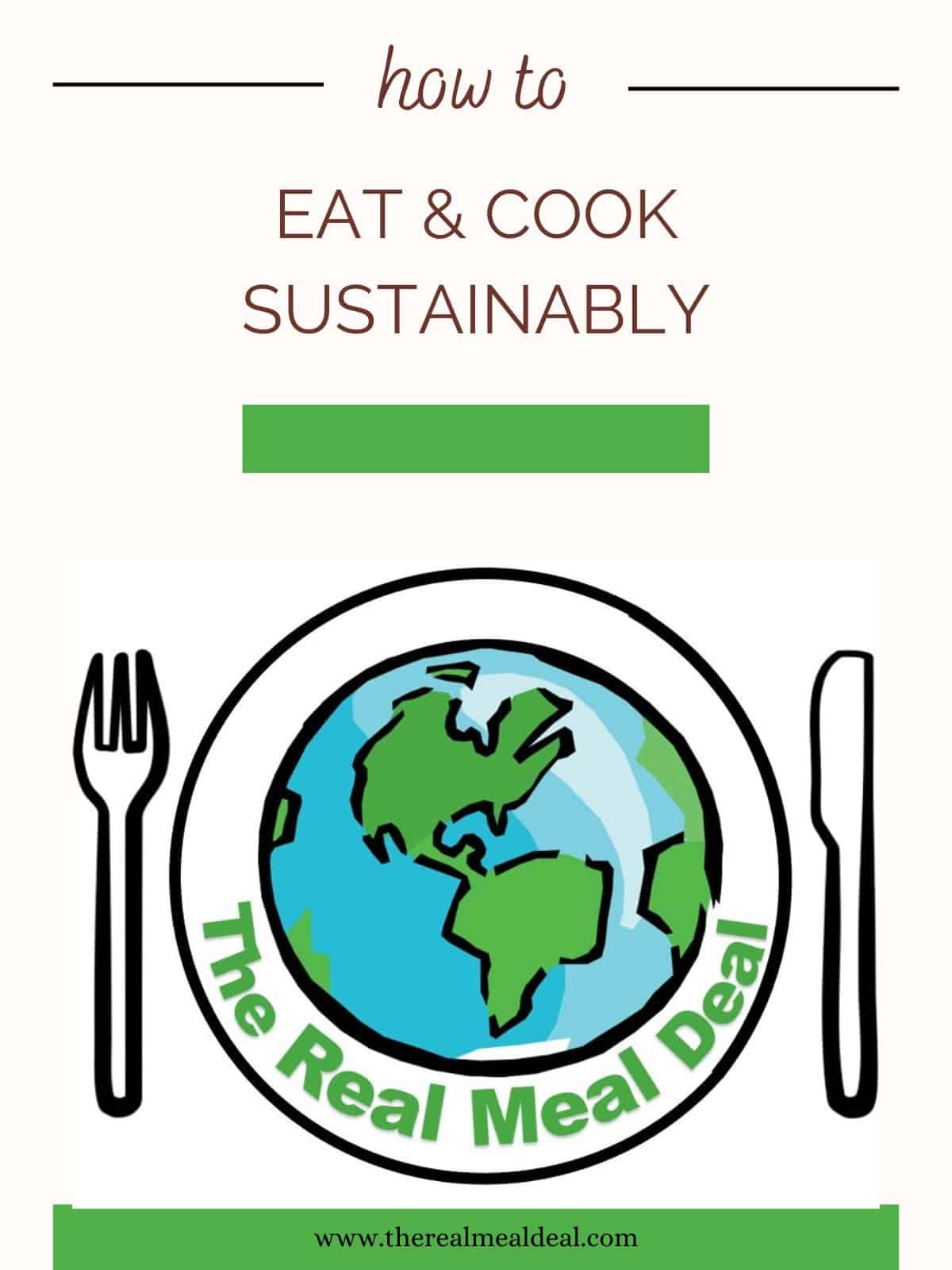
Jump to:
- What is a Sustainable Diet?
- Why is it important?
- The impact of Food on the environment
- The Eat Lancet Plate
- How to Eat Meat Sustainably
- Why Reducing Food Waste Matters
- Choose Seasonal and Local Produce & Green Eating
- Choose Fairtrade Products
- Why Organic Farming is Sustainable
- What are Animal Friendly Products?
- How to eat Seafood Sustainably
- 💬 Reviews
What is a Sustainable Diet?
A Sustainable Diet means choosing foods that have the least impact on the planet and the lowest carbon footprint. A carbon footprint is a way of measuring how much carbon dioxide is released into the atmosphere. Carbon dioxide is the greenhouse gas that is causing climate change.
Eating a sustainable diet is easy. It doesn't necessarily mean going vegan or vegetarian, although more and more people are making this choice for environmental reasons. There are lots of sustainable choices we can all make and everyone is at a different starting place. This is why you will find Meat Recipes as well as Fish, Vegetarian, and Vegan on this site. I want to encourage everyone to make good sustainable food choices every single day, whatever they choose to eat.

Why is it important?
We all know that what we eat is linked to our health. Over the years we’ve heard many health messages around food.
Today, our world faces a new challenge. Can we feed a growing population without destroying our planet and ourselves?
Food is the
- Main cause of species extinction & Bio diversity loss.
- Biggest consumer of fresh water.
- Accounts for around 30% of the world's Greenhouse Gas Emissions
Adapting our habits to eat and cook sustainably is one of the easiest and most impactful changes you can make and it's a change we all need to make if we are to have a sustainable future.
The impact of Food on the environment
Humanity is facing a huge crisis. Both in terms of environment and also human well-being.
Around 30% of the world's Greenhouse Gas Emissions come from food. What we eat and what we waste, has a massive impact on Climate Change. It also impacts Food Poverty in Developing Nations.
According to the UN, the world produces more than enough food to feed the global population—but as many as 828 million people still go hungry. After steadily declining for a decade, world hunger is on the rise again, affecting nearly 10% percent of people globally. From 2019 to 2022, the number of undernourished people grew by as many as 150 million, many as a result of climate change.
Climate change is already having a devastating impact in many countries, particularly in the Global South. Droughts and floods mean land can no longer be farmed, which leads to hunger and migration. Temperature rises and extreme weather events cause devastation and leave areas uninhabitable.
The Eat Lancet Plate
In 2019, a global, non-profit called EAT published what is called the EAT-Lancet Plate. This plate shows what a sustainable diet looks like. It's not only a healthy diet for the planet, but it's also a healthy diet for us. The plate shows a typical suggested daily intake of food across the various food groups.
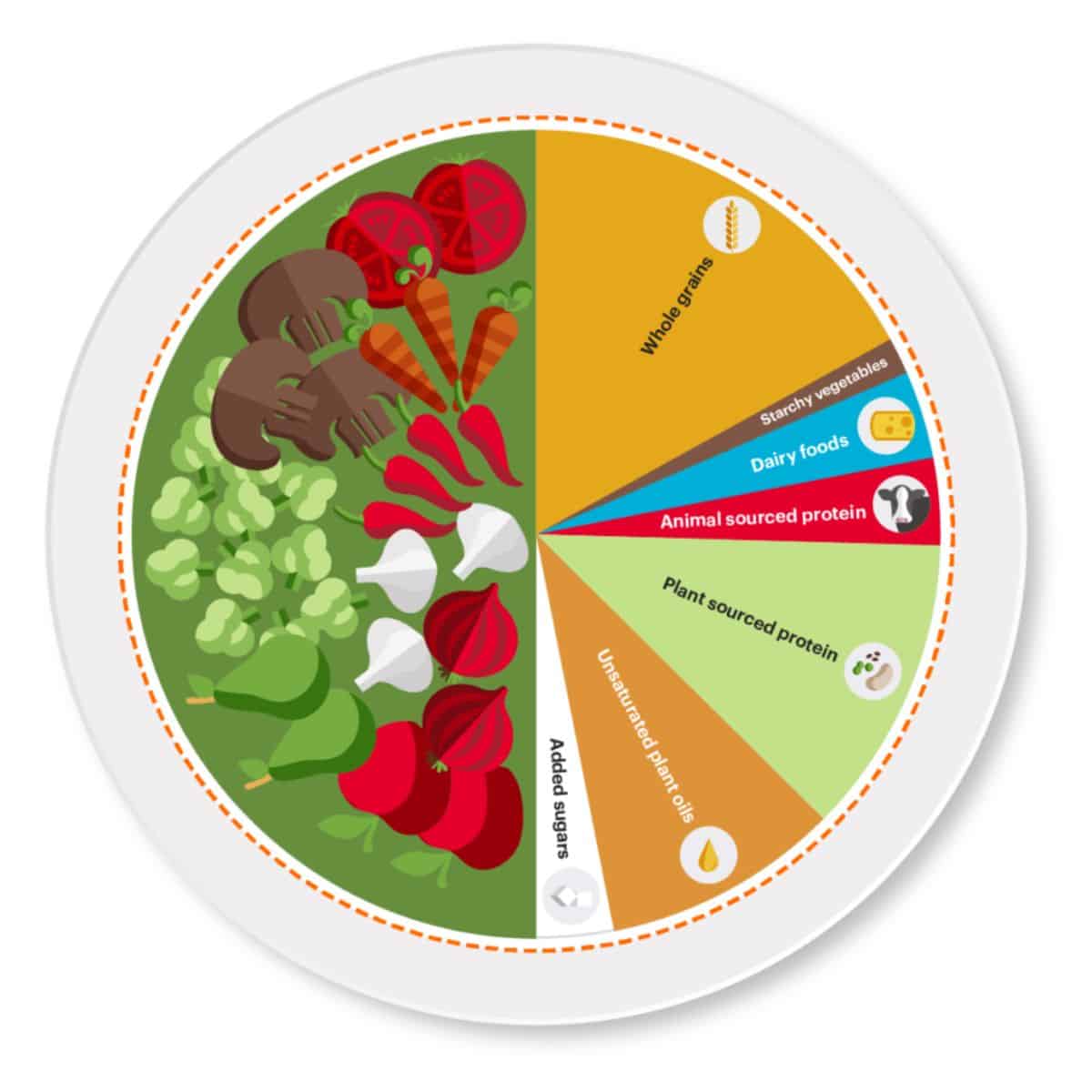
The diet is not unlike a traditional Mediterranean diet. Whilst we can still eat meat, fruit and vegetables need to be the new main course and become the biggest food group we eat.
- The emphasis is on a lower amount of meat, dairy, and seafood.
- Choose unsaturated fats and stay away from refined grains, highly processed foods, and added sugars.
The amount of red meat is reduced and would be the equivalent of a burger once a week or a big juicy steak once a month. It also suggests two servings of fish a week and one small serving of dairy a day.
How to Eat Meat Sustainably
If we do choose to eat meat, what should we consider? The issue of eating meat and sustainability is complex. However, we cannot get away from the fact that many of us need to reduce the amount of meat we are eating and build some meat-free days into our diets. (see Eat Lancet Plate above). A recent study by Oxford University found that if we all cut out red meat from our diets just one day per week, the environmental benefit in terms of greenhouse gas emissions, would be the equivalent of taking 16 million cars off the road in the UK which would be a reduction of 8.4% in our greenhouse gas emissions.
If we do eat meat, it is important to recognize the environmental impact of meat is not all the same.
‘It’s not the cow, but the how’.
The environmental impact of locally bred, grass-fed produce is lower than that of factory-farmed meat. When meat is cheap, you can be fairly sure the welfare has also been cheap. Don’t be fooled by a picture of a farm gate on a cheap chicken in your local supermarket. Know where your meat was reared and not just packaged. A local quality butcher will know the farms their meat comes from and often source meat locally. Supporting local farmers who are key workers in our environment and countryside is important. If we choose to eat meat, we can choose to eat meat sustainably. This means not eating it every day and buying locally bred free-range grass-fed produce when we do.
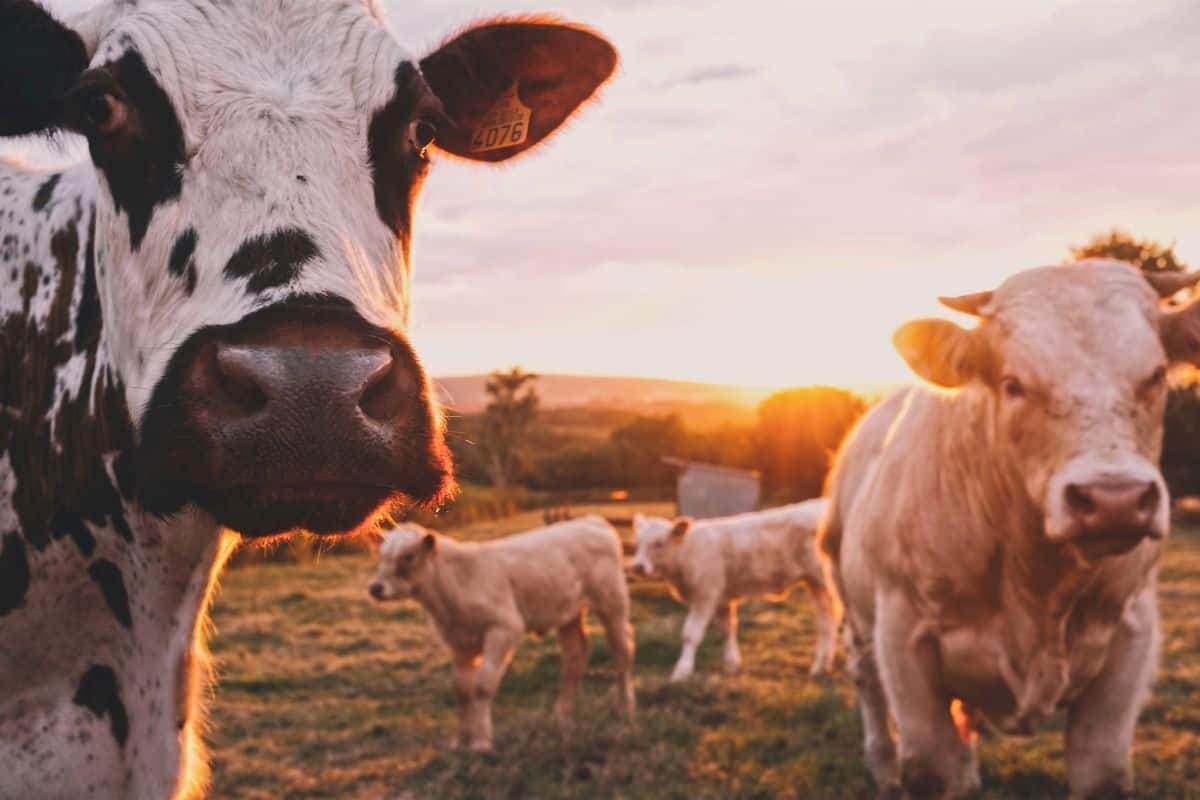
Tip for Reducing Meat. If you are struggling with meat-free meals, try reducing the amount of meat in your meals and replacing it with more vegetables or grains.
Why Reducing Food Waste Matters
Food waste is a huge sustainability issue. If food waste were a country, it would be the third-largest emitter of CO2 (carbon dioxide) in the world after the USA and China! Around one third of all the food produced in the world is wasted. This could be enough calories to feed every undernourished person on the planet. When we waste food, we not only contribute to those CO2 emissions, but we are also wasting all the energy and resources that went into producing that food.
Food waste in landfill sites emits methane gas which is a greenhouse gas 20 times more potent than CO2 or carbon dioxide. About 6%-8% of all human-caused greenhouse gas emissions could be reduced if we stop wasting food.
On an individual level, the average UK family still throws away around £60 of food every month. That’s a massive £720 a year straight in the bin! The U.S. Department of Agriculture's National Household Food Acquisition and Purchase Survey puts the cost at around $1900 per year per household. Planning our meals, only buying what we need, and using leftovers can help reduce this amount. There are lots of simple things we can all do to reduce food waste
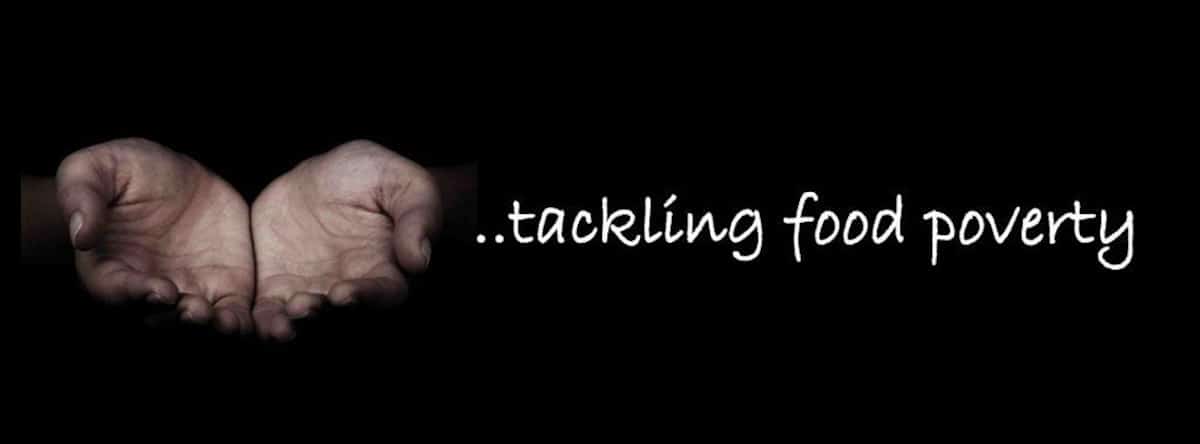
Choose Seasonal and Local Produce & Green Eating
Green Eating means choosing responsibly grown fruits and vegetables that's better for you and the environment. Eating produce in season is a great move towards eating sustainably. It's using food at its best. Research also suggests buying food in season can be up to one-third cheaper. Food in season is naturally abundant and hasn’t had to incur long-term storage costs. Using fresh ingredients means getting the best nutritional value from the meals you cook. Amazingly, nearly all of the vegetables you find in supermarkets and greengrocers can be grown in the UK.
Buying homegrown seasonal produce helps support both our local communities and the economy. Seasonal produce has a much smaller impact on the environment as it hasn't been stored or produced in artificial conditions, which use lots of energy. Foods that are airfreighted generally have the highest carbon footprints. These tend to be foods that are more delicate such as berries, asparagus and green beans. Bananas are usually shipped and actually have a low carbon footprint.
Choose Fairtrade Products
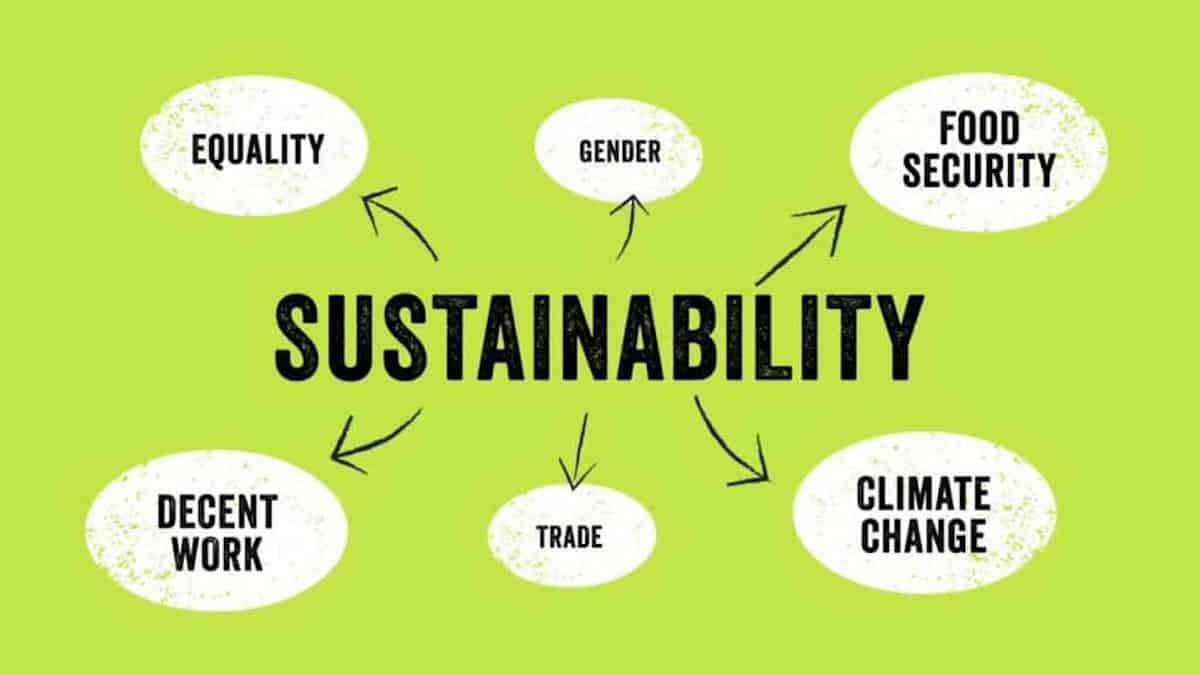
Buying Fairtrade products is a direct way to help the world’s poor and support sustainable farming practices. You get a high-quality product and make a real difference in the lives of the people who grow your food. Fairtrade can be the difference between farmers earning enough money to feed their families or not. It’s about decent working conditions and fair terms of trade. Fairtrade products are produced using sustainable farming practices which protect the farmer and the land. The products are less contaminated because they limit the use of harmful agrochemicals. Many Fairtrade products are also organic. Visit the Fairtrade website for more information.

Why Organic Farming is Sustainable
Organic farming is a more environmentally friendly way of farming. It produces less pollution, conserves water, reduces soil erosion, increases soil fertility, and uses less energy. In contrast, pesticides and chemicals sprayed onto plants contaminate the soil, water supply as well as the air. In some cases, they can still be present decades later.
As well as being a more sustainable option, organic food can be better for you because it doesn’t contain traces of any pesticides. Organic meat and dairy products don't contain antibiotics or other drugs, hormones, or pesticides. Since organic food doesn’t contain artificial preservatives, it is usually fresher and tastes better. People with allergies to foods, chemicals, or preservatives often find that symptoms lessen or go away when they eat only organics.
What are Animal Friendly Products?
Animal-friendly products have come from animals that have not been industrially farmed. Industrially farmed animals are often confined indoors in cramped conditions. This means they are exposed to high levels of toxins from their decomposing waste. To counteract the unhealthy conditions, the animals are given constant low doses of antibiotics. They are also routinely treated with pesticides and other additives and can be given hormones to speed their growth and increase productivity. It's worth remembering that when you eat the meat from these animals, you are eating all of those antibiotics, pesticides, and hormones too.
Choosing products that conform to recognized welfare standards is a better choice environmentally. The farms these animals are reared on produce less pollution.
How to eat Seafood Sustainably
Buying sustainably sourced fish and seafood is important for preserving the long-term health of fish stocks and also for protecting the marine environment. Fish with the Marine Stewardship Council (MSC) label, come from stocks that are not in danger and have been sustainably fished. Not all fish comes with this label but you can find plenty that does in most supermarkets. Visit the Marine Stewardship Council website for more information.
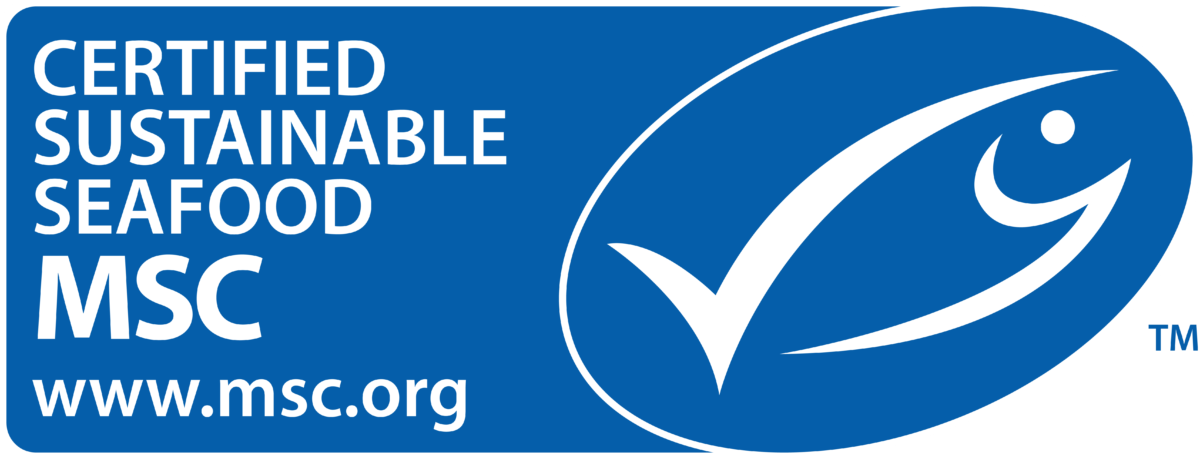
Fish is a good source of many vitamins, minerals, and protein and is lower in fat than most meat. The Dept. of Health recommends we eat one portion of white fish and one portion of oily fish each week and there are many Fish Recipes on this site to help you do this. Eating a wider variety of fish can save you money compared to the most commonly bought fish. Look out for suggestions for cheaper sustainable alternatives in the recipes.
We can all make eating and cooking sustainably a part of our everyday lives. It not only benefits our planet but our health and finances too. If you want to know what more you can do, visit my Eco Living page for some more lifestyle tips.


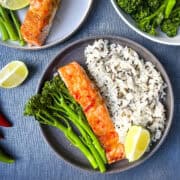
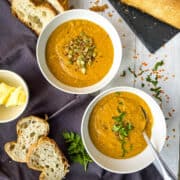



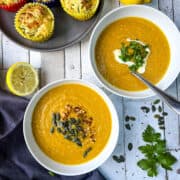

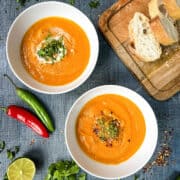
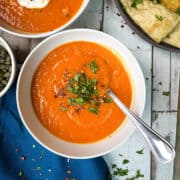
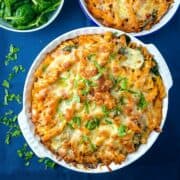
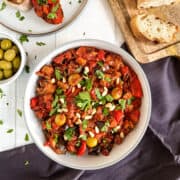
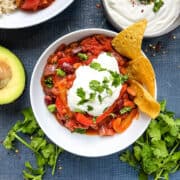



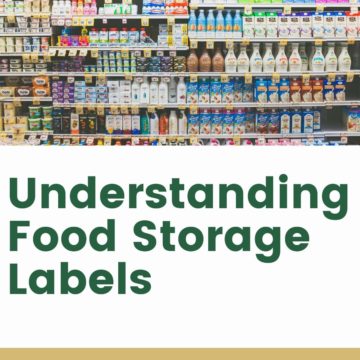
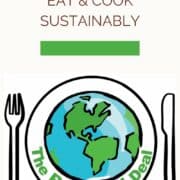
Comments
No Comments